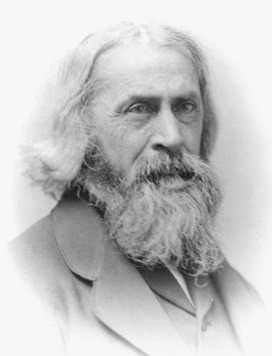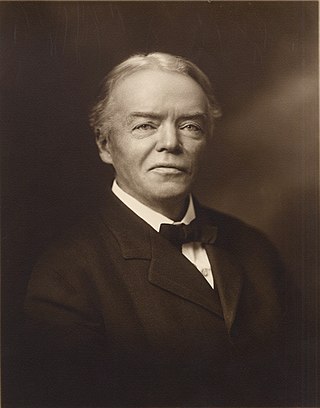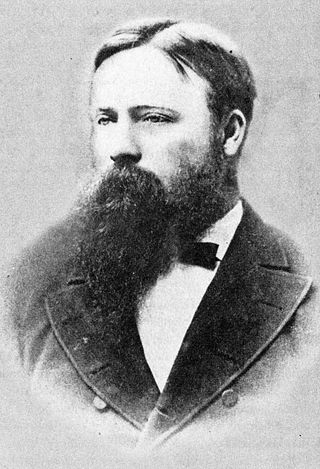Related Research Articles

Charles Sanders Peirce was an American scientist, mathematician, logician, and philosopher who is sometimes known as "the father of pragmatism". According to philosopher Paul Weiss, Peirce was "the most original and versatile of America's philosophers and America's greatest logician". Bertrand Russell wrote "he was one of the most original minds of the later nineteenth century and certainly the greatest American thinker ever".

William James was an American philosopher, historian, and psychologist, and the first educator to offer a psychology course in the United States. James is considered to be a leading thinker of the late 19th century, one of the most influential philosophers of the United States, and the "Father of American psychology".

Pragmatism is a philosophical tradition that considers words and thought as tools and instruments for prediction, problem solving, and action, and rejects the idea that the function of thought is to describe, represent, or mirror reality. Pragmatists contend that most philosophical topics—such as the nature of knowledge, language, concepts, meaning, belief, and science—are all best viewed in terms of their practical uses and successes.
Charles William Morris was an American philosopher and semiotician.

"Pragmaticism" is a term used by Charles Sanders Peirce for his pragmatic philosophy starting in 1905, in order to distance himself and it from pragmatism, the original name, which had been used in a manner he did not approve of in the "literary journals". Peirce in 1905 announced his coinage "pragmaticism", saying that it was "ugly enough to be safe from kidnappers". Today, outside of philosophy, "pragmatism" is often taken to refer to a compromise of aims or principles, even a ruthless search for mercenary advantage. Peirce gave other or more specific reasons for the distinction in a surviving draft letter that year and in later writings. Peirce's pragmatism, that is, pragmaticism, differed in Peirce's view from other pragmatisms by its commitments to the spirit of strict logic, the immutability of truth, the reality of infinity, and the difference between (1) actively willing to control thought, to doubt, to weigh reasons, and (2) willing not to exert the will, willing to believe. In his view his pragmatism is, strictly speaking, not itself a whole philosophy, but instead a general method for the clarification of ideas. He first publicly formulated his pragmatism as an aspect of scientific logic along with principles of statistics and modes of inference in his "Illustrations of the Logic of Science" series of articles in 1877-8.

Benjamin Peirce was an American mathematician who taught at Harvard University for approximately 50 years. He made contributions to celestial mechanics, statistics, number theory, algebra, and the philosophy of mathematics.
Louis Menand is an American critic, essayist, and professor, who wrote the Pulitzer-winning book The Metaphysical Club (2001), an intellectual and cultural history of late 19th and early 20th century America.

Josiah Royce was an American Pragmatist and objective idealist philosopher and the founder of American idealism. His philosophical ideas included his joining of pragmatism and idealism, his philosophy of loyalty, and his defense of absolutism.

Modern philosophy is philosophy developed in the modern era and associated with modernity. It is not a specific doctrine or school, although there are certain assumptions common to much of it, which helps to distinguish it from earlier philosophy.
Neopragmatism, sometimes called post-Deweyan pragmatism, linguistic pragmatism, or analytic pragmatism, is the philosophical tradition that infers that the meaning of words is a result of how they are used, rather than the objects they represent.

Chauncey Wright was an American philosopher and mathematician, who was an influential early defender of Darwinism and an important influence on American pragmatists such as Charles Sanders Peirce and William James.

This Charles Sanders Peirce bibliography consolidates numerous references to the writings of Charles Sanders Peirce, including letters, manuscripts, publications, and Nachlass. For an extensive chronological list of Peirce's works, see the Chronologische Übersicht on the Schriften (Writings) page for Charles Sanders Peirce.
Paul Weiss was an American philosopher. He was the founder of The Review of Metaphysics and the Metaphysical Society of America.

The Metaphysical Club: A Story of Ideas in America 2001 book by Louis Menand, an American writer and legal scholar, which won the 2002 Pulitzer Prize for History. The book recounts the lives and intellectual work of the handful of thinkers primarily responsible for the philosophical concept of pragmatism, a principal feature of American philosophical achievement: William James, Oliver Wendell Holmes Jr., Charles Sanders Peirce, and John Dewey. Pragmatism proved to be very influential on modern thought, for example, in spurring movements in modern legal thought such as legal realism.

Tychism is a thesis proposed by the American philosopher Charles Sanders Peirce that holds that absolute chance, or indeterminism, is a real factor operative in the universe. This doctrine forms a central part of Peirce's comprehensive evolutionary cosmology. It may be considered both the direct opposite of Albert Einstein's oft quoted dictum that: "God does not play dice with the universe" and an early philosophical anticipation of Werner Heisenberg's uncertainty principle.

American philosophy is the activity, corpus, and tradition of philosophers affiliated with the United States. The Internet Encyclopedia of Philosophy notes that while it lacks a "core of defining features, American Philosophy can nevertheless be seen as both reflecting and shaping collective American identity over the history of the nation". The philosophy of the Founding Fathers of the United States is largely seen as an extension of the European Enlightenment. A small number of philosophies are known as American in origin, namely pragmatism and transcendentalism, with their most prominent proponents being the philosophers William James and Ralph Waldo Emerson respectively.
Henry Augustus Pearson Torrey (1837–1902) was an American professor of philosophy at the University of Vermont.
Nicholas St. John Green was an American philosopher and lawyer, one of the members of The Metaphysical Club. Green is known for his contributions in the field of law as well as his involvement in the formation of pragmatism. He has been named as the “grandfather of pragmatism” by Charles Peirce.
Philip P. Wiener was an American philosopher who was a specialist on Pragmatism, Charles S. Pierce, Leibnitz, the history and philosophy of science, and the history of ideas. He co-founded the Journal of the History of Ideas.

Scott L. Pratt is a professor of philosophy at the University of Oregon. His research and teaching is focused primarily upon American philosophy, especially in the areas of Native American philosophy, pragmatism, philosophy of race and gender, philosophy of education, and the history of logic. He has previously served in various administrative roles at the University of Oregon, including executive vice provost for academic affairs (2017–2019), dean of the graduate school (2015–2017), and associate dean for the humanities in the College of Arts and Sciences (2006–2009).
References
- ↑ Menand (2001), p. 201.
- ↑ Peirce, C. S. (1929), "The Founding of Pragmatism", The Hound and Horn: A Harvard Miscellany v. II, n. 3, April–June, pp. 282–5 (see 283–4). Reprinted as "Historical Affinities and Genesis" in Collected Papers of Charles Sanders Peirce , v. 5, paragraphs 11–13 (see 12–13), dated by the editors as circa 1906. Also see Shook, John R. (n.d.)
- ↑ Peirce, Charles (1960). Buchler, Justus (ed.). The Philosophy of Peirce, Selected Writings. Harcourt, Brace and Company. p. 269.
- ↑ Menand (2001), pp. 201-2.
- ↑ Menand (2001), pp. 274-6.
- ↑ Menand (2001)